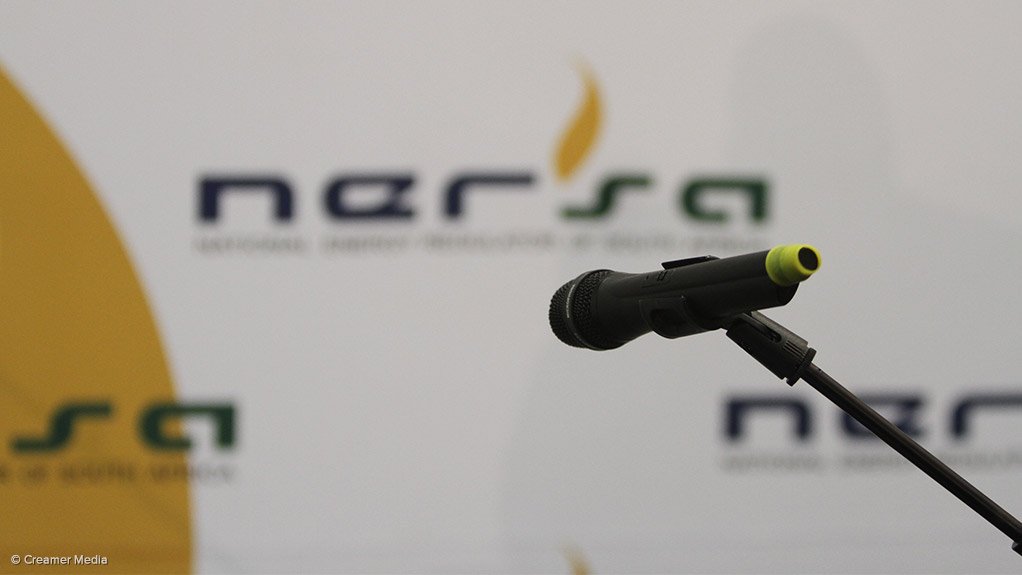The issues of electricity affordability and Eskom’s inefficiencies emerged as recurring themes as the National Energy Regulator of South Africa (Nersa) kicked off nationwide public hearings in Cape Town on Monday into the utility’s latest revenue application.
Through its sixth multiyear price determination (MYPD6) submission, Eskom is requesting an increase in its allowable revenue to R446-billion in 2025/26, R495-billion in 2026/27 and R536-billion in 2027/28.
If approved, it would result in tariff hikes of 36.15%, 11.91% and 9.1% on April 1 of each of the three years covered. This, in light of Eskom also estimating a weak sales outlook, falling from 179 TWh to only 172 TWh by the end of the period on expectations that sales to large consumers will fall.
As a consequence, the standard tariff could rise to 266.78c/kWh next year from 195.74c/kWh.
In his presentation, Eskom CFO Calib Cassim provided a breakdown of the key drivers of the proposed increase, including a rise in primary energy costs to R128-billion next year, underpinned by coal costs of R93.6-billion. This makes primary energy the single-largest part of the proposed hike, comprising 11.2% of the 36.15% being sought.
The other components included in the revenue request are: operating expenses of R93.3-billion, including R37.4-billion for employee costs; a controversial R8.9-billion included to cover a portion of outstanding arrear debt owed to Eskom by municipalities; R66.6-billion for electricity purchases from independent power producers; R10-billion for international electricity purchases; R66.9-billion in depreciation costs; R42-billion for a return on assets, based on a 4% return; R6.5-billion for the environmental levy; R5.5-billion for the single quarter in Eskom’s next financial year that will be affected by the new carbon tax; and R16.7-billion in approved clawbacks through the regulatory clearing account.
In addition, 5.7% of the increase relates to the implementation of additional negotiated pricing agreements (NPAs) with electricity-intensive companies, such as smelters.
The NPAs arise from a government policy decision to provide qualifying companies with an incentivised tariff, paid for by standard tariff customers.
Applicants for the incentive have to prove that electricity is a significant driver of their operating costs and that they are consuming a minimum of 80 GWh yearly at a load factor of greater than 70%.
Cassim reported that 12 TWh of sales next year would be covered by NPAs, a 121% increase in NPA sales when compared with 2024/25.
Nersa panel members questioned whether Eskom had raised the implications of the steep rise in the number of NPAs with government. Cassim replied that it would do so in future, but that it was currently focused on implementing the policy.
GUMEDE SUSPENDED
The Nersa panel was chaired by Nomfundo Maseti, with the fulltime member responsible for electricity, Nhlanhla Gumede, having been suspended ahead of the proceedings. The other panel members were Nersa chairperson Thembani Bukula, CEO Nomalanga Sithole, full-time regulator Muzi Mkhize and part-time regulator Thembeka Semane.
Panel members questioned whether Eskom should be considered an efficient operator, using as a proxy the fact that the utility was planning to increase its energy availability factor to 70% by March, instead of the 75% initially announced.
Concern was also expressed as to whether the application had been fully recalibrated to the more stable operating conditions at the coal stations; an improvement that had left the country loadshedding-free since March 26.
Panel members highlighted, in particular, Eskom’s request for revenue for higher volumes of heavy-fuel oil, which is used to restart coal units on their return to service, as well as the low sales volumes being forecast.
Presenters, meanwhile, bemoaned the implications of the proposed hike on consumer affordability, which had already been stretched to breaking point by combined tariff hikes of more than 470% since 2009.
POLITICAL INTERVENTION?
In his presentation, South African Local Government Association head of energy and electricity Nhlanhla Ngidi expressed sympathy for Eskom’s desire to move towards a “cost-reflective tariff” saying that municipalities were keen to do likewise.
However, he called for a dialogue between government and industry on how the transition to such tariffs should be managed without causing a “shock to the economic system”.
“It has become more apparent that there is a need for innovative models that include some form of subsidies introduced by government,” Ngidi said.
Other presenters were even more strident, including Swartland municipality’s electrical engineering services director Thys Möller who questioned whether standard tariff customers should be burdened with paying for the NPAs.
He also described the granting of the increase, which would translate to 43.55% for municipal customers when implemented in July, as “just not affordable”.
“Granting the requested tariff increase will place a burden on the municipality with respect to the existing challenge of inequality, poverty and unemployment as the municipality will be forced to pass the cost through to municipal customers,” Möller said.
The Green Connections’ Liziwe McDaid and Lisa Makaula, meanwhile, went further to describe the entire electricity pricing system as “unsustainable and broken”.
“We have written to the Minister of Energy and Electricity to say that we need a whole restructuring of the system,” McDaid said in her presentation.
Likewise, the South African Faith Communities Environment Institute’s Mishkah Moerat argued that energy pricing policies needed to be reviewed in light of the fact that energy provision was in transition across the entire supply chain.
Moerat also called for a reworking of the free basic electricity, which is widely viewed as insufficient and where many eligible households were not receiving the benefit.
At the start of the hearings, the Democratic Alliance (DA), which is part of the Government of National Unity but has been collecting signatures to oppose the Eskom increase, staged a protest outside the venue.
The DA’s Western Cape Premier Alan Winde described the proposed hikes as outrageous and unacceptable.
“We reject it absolutely. You cannot have this sort of increase, our citizens cannot afford it,” Winde said.
EMAIL THIS ARTICLE SAVE THIS ARTICLE ARTICLE ENQUIRY
To subscribe email subscriptions@creamermedia.co.za or click here
To advertise email advertising@creamermedia.co.za or click here











